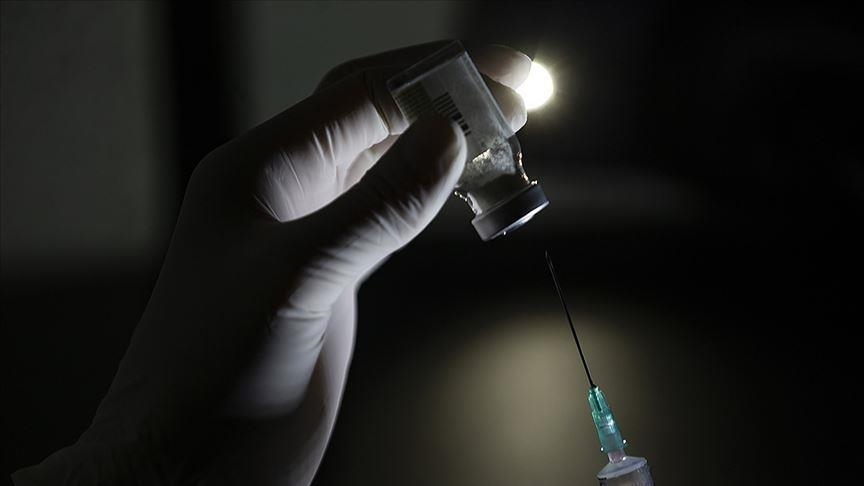

By Anadolu Agency
GENEVA
The World Health Organization (WHO) has recommended “targeted vaccination” in the fight against mpox, instead of mass vaccination in areas where the virus has been detected, arguing that stopping the spread of mpox is easier than dealing with COVID-19.
“It’s not recommended for mass vaccination; that’s very important. It really needs to be targeted vaccination where the virus is transmitting,” WHO spokeswoman Margaret Harris told Anadolu in an exclusive interview.
Noting that the rapid spread of the virus has captured global attention, she said the mpox virus has two genetic types: Clade 1 and Clade 2.
Harris expressed concern over the new strain of the virus, Clade 1b, which emerged last year, saying: “It’s this one that we’re worried about because it transmits very rapidly. It’s also got quite a high death rate, especially among children.”
Stressing that one of the main concerns is the virus’ rapid spread, she said the virus caused more cases in 2024 than in 2023 and that the past year had already seen more mpox cases than previously.
She went on to say that while the number of mpox cases increased in the eastern Democratic Republic of Congo, it has spread to Burundi, Rwanda, Uganda, and Kenya as well.
“We are seeing a higher fatality rate. It’s around 3% and in really vulnerable groups, like small children. It’s higher than that. We’re particularly concerned about the effects on small children. Now it’s important to understand that the populations that it’s been spreading through rapidly are people who have been displaced by conflict. They’re in a very precarious situation,” she said.
Pointing out that people with smallpox and HIV infections are more likely to experience a more severe form of the mpox virus, Harris said they are at a higher risk of death.
She noted that there is no specific treatment for the mpox virus and no antiviral drug to combat it, but that symptomatic treatment is effective.
The WHO spokeswoman said people who contract the disease will develop skin rashes, emphasizing the need for treatment to prevent other infections.
She suggested that those infected with the mpox virus will experience fevers and require antipyretic and pain-relieving medications.
She underscored the importance of patients receiving medical treatment and being able to isolate themselves during this process.
No need for lockdown due to outbreak
Noting that the vaccines developed for smallpox are effective against mpox, Harris said: “They are recommended for people who are known to have been exposed. It’s recommended they get it within four days of exposure to somebody known to have mpox.
“The other group that should get vaccination (is) health workers in areas where there’s an ongoing pandemic, to protect them. There are some other groups that (are) at greater risk.”
Northern Europe, the US, and Japan have good resources for vaccine stocks, she said, adding that they are currently working closely with countries that have stocks and manufacturers to increase production and ensure that these stocks reach the areas where they are needed.
She said mpox is an active virus that can be easily stopped, as long as those suffering are identified, good contact with them is maintained, and isolation measures are implemented.
She asserted that there is no need for a lockdown due to the outbreak, but that good surveillance to determine who is sick and good laboratory diagnostics are needed.
Advising people not to worry as if they are facing a situation similar to COVID-19, Harris underlined that the virus is different and spreads in different ways.
“COVID-19 spread primarily through the air. This one spread primarily through very close physical contact. Stopping all the things that you do for the physical contact that is actually easier than when you’ve got something that’s spreading through the air,” she said.
“However, we don’t want this to spread around the world and become a pandemic, because, again, it will put pressure on health systems. That is the reason for calling a public health emergency of international concern to prevent a pandemic.
“Of course, is why we have the pandemic treaty that we’re trying to finish and get agreed so again. Whenever we have a situation like that, we have systems that can kick in very quickly and stop a threat from becoming a pandemic,” she added.
Harris pointed out that Pakistan and Sweden have reported mpox cases, highlighting the importance of these two countries detecting and reporting cases quickly.
She also highlighted the importance of countries reporting the cases transparently, as this transparency contributes to the fight against the disease.
We use cookies on our website to give you a better experience, improve performance, and for analytics. For more information, please see our Cookie Policy By clicking “Accept” you agree to our use of cookies.
Read More